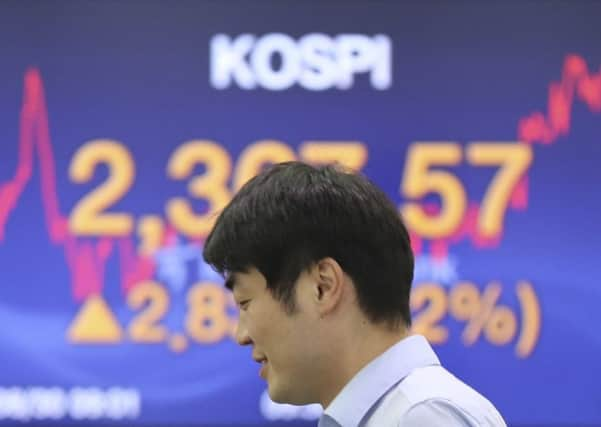Martin Flanagan: North Korea shadow hangs over markets
This article contains affiliate links. We may earn a small commission on items purchased through this article, but that does not affect our editorial judgement.


There was the predictable renewed sell-off of equities on Tuesday when the increasingly mis‑titled Hermit Kingdom fired a missile over Japan.
• READ MORE: May slams North Korea’s ‘reckless provocation’
Yesterday, some steadiness returned, for no other reason apparently in the stand-off with Kim Jong Un than that – as far as many traders are concerned – no negative news now is good news. Good luck with that comfort blanket.
Advertisement
Hide AdAdvertisement
Hide AdThe relative stability is far from a rebound. North Korea’s belligerence has become a geo-political shadow with a capital S.
Market professionals are cautious about buying on weakness because they have been burnt before, having moved in when concerted political sanctions have seemed temporarily to rein in Kim Jong Un only to see the dictator then thumb his nose at the international community again with flagrant aggression and ratchet up tensions anew.
European equity markets have generally been weaker over the summer, and the missile over Japan – one of North Korea’s most provocative actions in 20 years – is not going to restore bullish sentiment.
For equities, a period of treading water may be the best that can be expected in the current climate of flashpoint, stepback, then renewed danger zone. Better stagnation than panic-selling, though.
Change of food focus
Co-op Group’s move to acquire convenience store chain Nisa continues the flurry of changes that have enveloped the food retail sector. It follows the war of attrition waged on the big four supermarkets by the discounters Aldi and Lidl for several years, finally leading the industry – and new entrants – to think more imaginatively about how to react.
This has basically involved focusing on food wholesaling, convenience stores and non-food. Sainsbury’s took over Argos; Tesco has an agreed bid for Booker on the table, subject to regulatory approval.
Advertisement
Hide AdAdvertisement
Hide AdAmazon also focused a few minds on its grand entrance via the takeover of Whole Foods, while Morrisons thought laterally by reviving the Safeway brand on some products. A kaleidoscope.